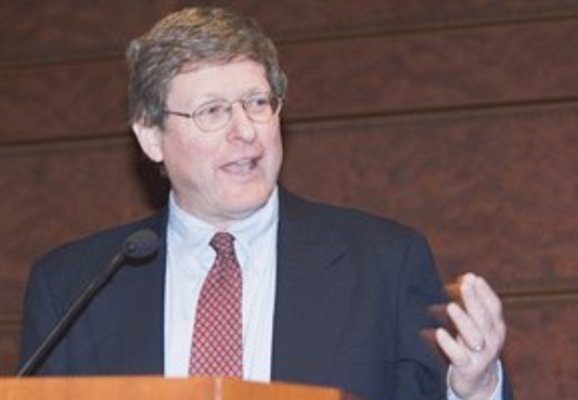Rising China mounts no threat to U.S. interests: Jeffry Frieden

Jeffry Frieden, professor at Harvard University's Department of Government, believes the U.S. remains the world’s most powerful economy and military power though other countries are also making progress.
He adds, "I believe certainly other countries are on the rise, in particular China, but this in itself is not a threat to American interests. It remains to be seen how these new powers will act, and what their relationship will be with the older powers."
In what follows, the academic figure has answered a number of questions on the politics of international monetary and financial relations.
Q: After the Second World War, we saw the establishment of monetary, financial and business mechanisms such as the IMF, World Bank, and GATT. These institutions have focused primarily on economic development. But the problem is that all of the bodies have prescribed a single instruction for different cultures and societies. What do you think about the issue?
A: I think the cultural and other values of different societies are their own business, so long as they do not violate generally agreed-upon standards of human, political, civil, and social rights. Typically the international economic institutions have not, in my view, directly interfered with cultural values. International economic trends – trade, finance, the internet – are much more likely to be perceived by some people as threatening to traditions. But this has been true for thousands of years; there is no reason it should be less true today.
Q: With the liberal economy model failing, some countries such as America, contrary to the trend, intervened in their economy. That allowed the government to intervene in some other areas, as well. Does this mean the failure of liberal or neoliberal patterns?
A: No serious modern economic analyst or policymaker believes that government has no role in the economy. The question is both how big that role should be, and what it should do. About this there is a wide range of views in every society, and no consensus on the “correct” development model.
Q: After the 1970s, the hegemonic power of America has declined. What economic component was effective in this case? Where do you put the role of other players such as Japan and Europe in the equation?
A: It is true that the American role in the world economy is not as great as it was before the 1970s, but part of that was the anomaly of the destruction of World War Two. The United States remains the world’s most important economy, and its most potent military power. Certainly other countries are on the rise, in particular China, but this in itself is not a threat to American interests. It remains to be seen how these new powers will act, and what their relationship will be with the older powers.
The development of new centers of economic activity does not necessarily threaten the old. Japan and Europe are very largely allies of the U.S. on almost all economic issues, so they certainly to not threaten substantial interests of the United States.
Q: BRICS is the union between Brazil, Russia, India, China, and South Africa. Can this union become a powerful economic bloc benefitting its member states?
A: Probably not; there is far too little in common among all these countries, other than that they are poorer than the rich countries. But they may be able to obtain more influence in international institutions, which would benefit them all.
Q: We see that America supports the Pacific Free Trade Agreement in Asia and Transatlantic Trade and Investment Partnership in Europe. Why is the U.S. seeking to boost regional-trade organization?
A: The WTO’s latest negotiating round, the Doha Round, is stalled. This has led countries, including the United States, to pursue other ways to develop closer trading ties with the rest of the world. The trend is certainly not away from globalization; it is largely a continuation of it by other means.
Leave a Comment